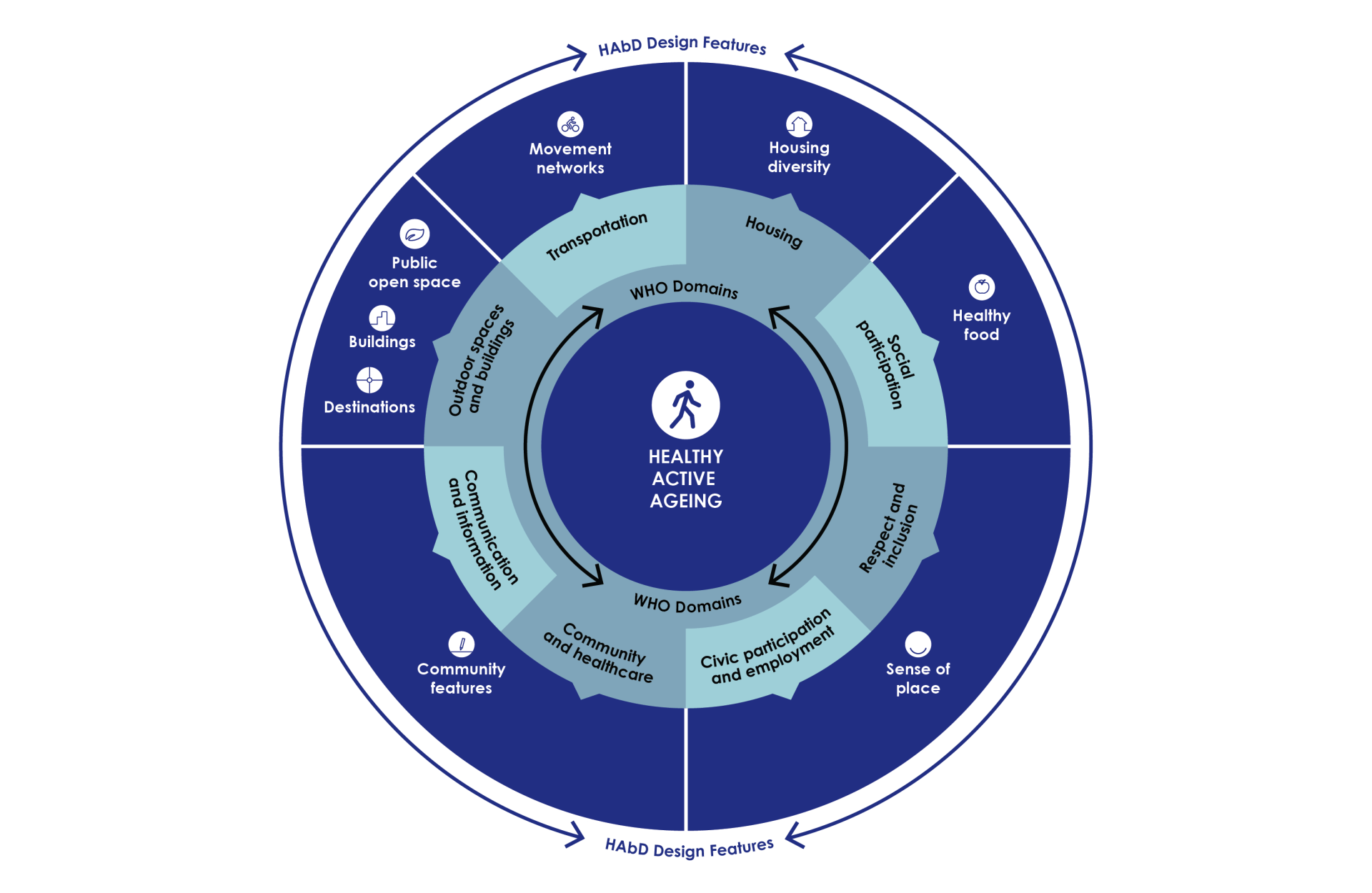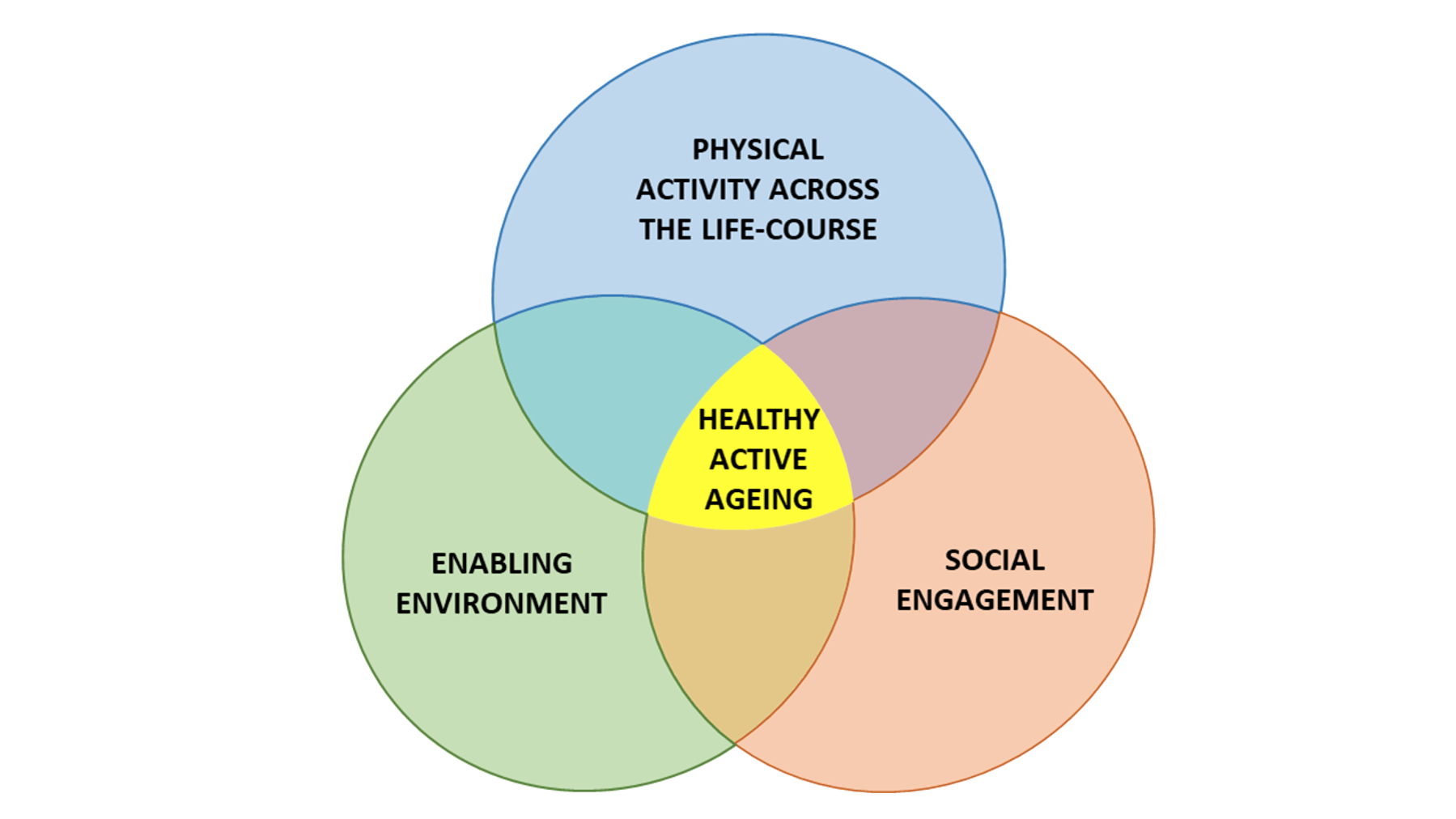Healthy Active Ageing
Welcome to the new Healthy Active Ageing Module, developed by the Heart Foundation. This module was created as part of our ongoing commitment to support professionals to get older Australians active. This project has been funded by Sport Australia through the Move It AUS Better Ageing Grants program.
This Healthy Active Ageing module brings together the latest evidence, practical advice, checklists, case studies, infographics and other resources to develop healthy active ageing neighbourhoods and communities.
The content of this module aligns with the World Health Organisation (WHO)'s age-friendly approach and the WHO’s eight domains to an age-friendly community, while considering the existing Healthy Active by Design design-related features.
This module has been created for practitioners and policy makers across transport, urban planning, housing, information, health and social welfare, state and local governments, and more.
We trust this new Healthy Active Ageing module will be useful to inform best practice planning and to help advocacy efforts that seek improvements to the walkability of Australia’s places and spaces, meeting the needs of our rapidly ageing population.
Heart Foundation. 2020.
Why is Healthy Active Ageing Important?
Across the world, people are living longer, and older people make up a growing proportion of the world's population [20] [21]. In response, communities and governments need to rethink how ageing is viewed and addressed. When older people are healthier, happier, more active and engaged, this delivers a social and economic benefit for the whole of society [86] [119]. Preparing for an increasingly ageing population requires planning and a focus on health promotion and disease prevention across the life span.
What do we mean by ‘Healthy Active Ageing’?
Healthy Active Ageing incorporates a focus on increasing the physical activity and health of older adults, while recognising the importance of a whole of life span approach, together with the broader social, cultural, environmental and contextual issues of quality of life and wellbeing.
A range of terms are used to refer to ageing: “Older Adults” is the term used by WHO and the preferred social science term; “Seniors” is commonly used in Australian Anglo-Saxon language' and, “Elders” is the term often preferred by many cultural and indigenous groups. Asking for the preferred term used by the group you are working with is recommended.
Defining older age
The proportion of the population who are aged over 65 is the most used measure to define population ageing. This measure alone is not an effective determinant, as the older population is not a homogenous group. Numerous physical, economic, social and cultural environments can influence how a person ages. Considering indigenous and migrant community group ageing equities, 55 years is a more appropriate and wider acknowledged chronological age that defines older age.
Healthy Active Framework
A Healthy Active Ageing framework features four key interconnected principles:
- ageing affects all ages across the life-cycle;
- physical activity improves the health and well-being of older people;
- social engagement provides the motivation to maintain healthy levels of physical activity; and
- key design features are needed to facilitate both the physical activity and social engagement required to support the highest possible quality of life for older people.
See Figure 1.
Source: Baldassar, L. & Atkins, M.T. (2020) Healthy Active Ageing Rapid Evidence Review, Heart Foundation
Figure 1: Conceptual diagram of Healthy Active Ageing addressed in this Rapid Evidence Review.
A Healthy Active Ageing lens can be applied to all the design features of Healthy Active by Design. If spaces are designed to encourage and support older people to remain active and socially connected, then these spaces and places will also deliver benefits to the wider community. A focus on intergenerational mixed-space usage, integration and social inclusion is critical to the creation of optimal spaces.
We look forward to widespread use of the module and making a difference to Healthy Active Ageing.
Download the report here.
Download the infographic here.
Stay informed. Sign up to our newsletter.
I agree that I have read and I accept the Heart Foundation's Privacy Statement.


